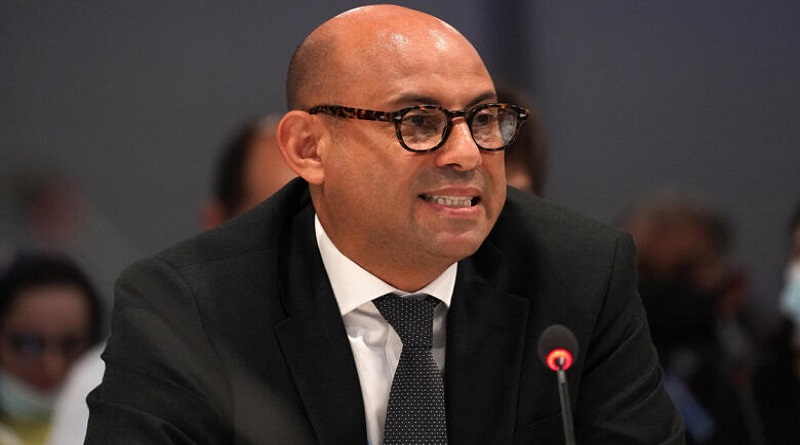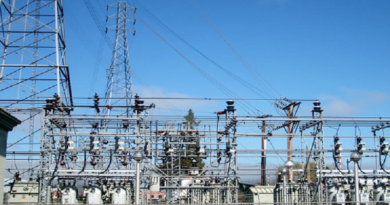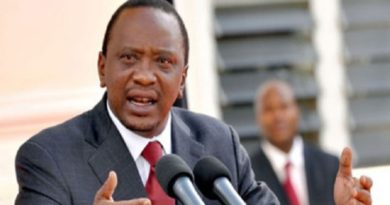Simon Stiell: In the face of climate chaos, the G20 must show leadership
Keynote speech by UN Climate Change Executive Secretary Simon Stiell at G20 session on Environment and Climate Sustainability in Chennai, India
Colleagues, friends,
This month we have experienced the highest global temperature on record. Heat waves in North America, Europe, North Africa, the Middle East, China. Wildfires. Drought.
Torrential rains in India and South Korea. Extreme heat in the Antarctic and the oceans. This is Climate chaos.
The G20 was created in the wake of a financial crisis. Since then, its leadership has always been broader than macroeconomic issues – it has addressed issues such as cease fires and nuclear disarmament.
And it was at the G20 in China, in 2016, where Premier Xi Jing Ping and President Obama formally announced their countries’ accession to the Paris Agreement.
The point I’m making, is that this forum has both precedent and obligation to demonstrate leadership on crises and as I laid out in my opening – This is a crisis.
Our ministerial convenings must deliver progress. It is a colossal waste of time and emissions for us to gather, if our intention is merely to reiterate what we already know.
Let me highlight a few specifics areas of consensus or suggested solutions from recent meetings that we could be taking forward:
Phasing down fossil fuels is essential and inevitable.
On loss & damage there is a clear expectation that we will deliver on the task parties set themselves at COP27 – to operationalize the arrangements including the fund.
We must keep 1.5 alive, for instance through global 2030 targets on renewables, energy efficiency and economy-wide emission reduction targets, covering all greenhouse gases.
We need a strong outcome on the global goal on adaptation, on which much remains to be done, is expected.
We need tangible movement on climate finance, which is essential to all other workstreams. As a bare minimum, a demonstration of progress on the 100 billion, the doubling of adaptation finance by 2025 and a strong GCF replenishment. But we must go much further to enable the scale of action we know is necessary.
Reforming multilateral development banks and other institutions is necessary to create a global financial architecture fit for purpose to deliver climate action.
And that we need a just transition.
As custodian of the Paris Agreement, I must speak truth to power. You are collectively not doing what you signed up to do.
Geopolitical tensions have thwarted our efforts, demonstrating that we are collectively unwilling to pull the levers at our disposal, namely, the transition away from fossil fuels, the funding required to do so, and the support to all that are already struggling to adapt to a 1.1 degree world, let alone a 1.5 one, or heaven forbid a 2.5 degree one.
Climate action cannot happen without secure, accessible and sufficient finance.
Those around the room who provide it, that provision of proper support is an essential responsibility, without which you become a blocker of the actions required to address the crisis.
In addition, those around the room, obstructing the signals necessary to instruct markets and generate momentum on the transition of the energy system, you are blocking the actions required to address the crisis.
We should be able to come out of this meeting with a strong communique – one which covers all relevant issues to the climate crisis. That includes how we will tackle the problem through the energy transition and how climate action can be funded.
Incoming COP28 President Dr Sultan, will be convening us in Dubai in around 120 days, providing the opportunity for us to practically tackle what needs to be done through the Global Stocktake, for us to course correct and get on track with delivering on our collective commitments.
We need a call to action, with a message on how every government, industry and individual can play their part in the profound transformation we agreed to.
Between now and then, I implore you not to sit on your hands. Clearly there are significant divides which need bridging. Pair up, across perspectives, and find solutions, build the elements of the package.
The UNFCCC will continue to support you. Climate action cannot be a victim of political tensions, for left unaddressed it will deliver its own tensions.
We must come together at COP28 in a spirit of political engagement and global cooperation to show the people of this planet that we are acting at last.
I thank you.




